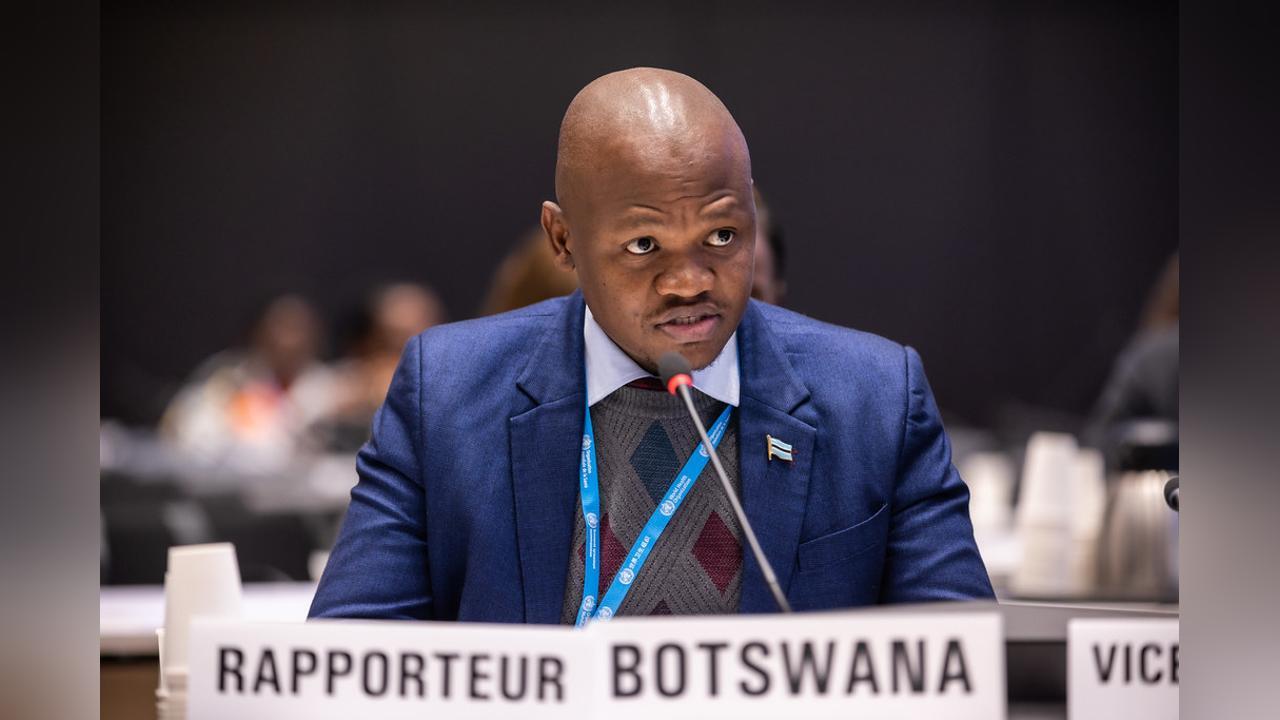Africa-Press – Botswana. Plans are afoot to develop an inclusive agriculture sector policy.
Acting Minister of Lands and Agriculture, Dr Edwin Dikoloti, said at the closing ceremony of the National Development Bank (NDB) Green Energy Transition for Sustainable Agriculture (GETSA) project in Gaborone on May 13, that sustainability would be the core of the policy.
Dr Dikoloti explained that the policy sought to address challenges such as climate change, land degradation, water scarcity and the bio diversity loss. He said central to the policy were transformative initiatives including the promotion of regenerative agriculture, conservation farming, reforestation and climate smart aquaculture.
Dr Dikoloti also said by advancing sustainable farming practices, efficient water-use systems and enhanced natural resource management, the policy aimed to strengthen the climate resilience of the farming communities. Ultimately, he said government aspired to reverse desertification and establish a robust, sustainable and climate resilient agricultural system for future generations.
Furthermore, Dr Dikoloti said to build a resilient agricultural sector, as a semi-arid country, Botswana must prioritise water for production by investing in efficient irrigation systems and sustainable water harvesting technologies.
The assistant minister said precision agriculture driven by data and innovation must be embraced to optimise resource use and maximise productivity, especially under constrained environmental conditions. Equally important, he said, was the urgent need to invest in the development and production of climate-resilient seed varieties that could withstand drought, heat stress and erratic rainfall patterns.
Therefore, Dr Dikoloti appealed to all stakeholders, research institutions to join hands and explore how they could strengthen the national seed systems and empower farmers to thrive in the face of climate change. He commended the National Development Bank (NDB) for advancing its Green Climate Finance Strategy, which he said aligned with Vision 2036, the National Climate Change Policy and the collective commitment to a low-carbon, climate-resilient future.
In her remarks, NDB chief executive officer, Ms Ogone Madisa said since 2022 through the GIZ/IKI grant of €850 000 (about P12 941 532) they had empowered 54 smallholder farmers to shift to solar powered solutions, cutting carbon emissions by 770 tonnes annually. Ms Madisa said through the project they had saved 835 litres of diesel per hectare, conserved 1600 cubic meters of water and optimised over 30 000 kWh of clean energy.
She said 45 per cent of projects were women-led while seven percent of projects were youth-led. The CEO said the project reflected NDB’s commitment to being the catalyst for sustainable economic development in Botswana. She also said they were transforming into Botswana’s centre of wealth creation for SMEs, driving scalable, sustainable industries.
One of the beneficiaries, Ms Portia Monowe said before receiving the support she faced challenges such as unreliable water supply, high energy costs, lack of lighting and inability to implement modern farming techniques. Ms Monowe said through the GETSA funding, they were able to use solar power, acquire water pump system and 225 000 litres water reservoir for reliable storage, a greenhouse tunnel and a drip irrigation system.
She said they had significant water savings through efficient irrigation and were able to eliminate water shortage that previously plagued their operation. She said as a female farmer, she had gained independence and security while energy costs had plummeted improving her financial sustainability. Ms Monowe said through the project young people in her area saw agriculture as a new light.
For More News And Analysis About Botswana Follow Africa-Press






